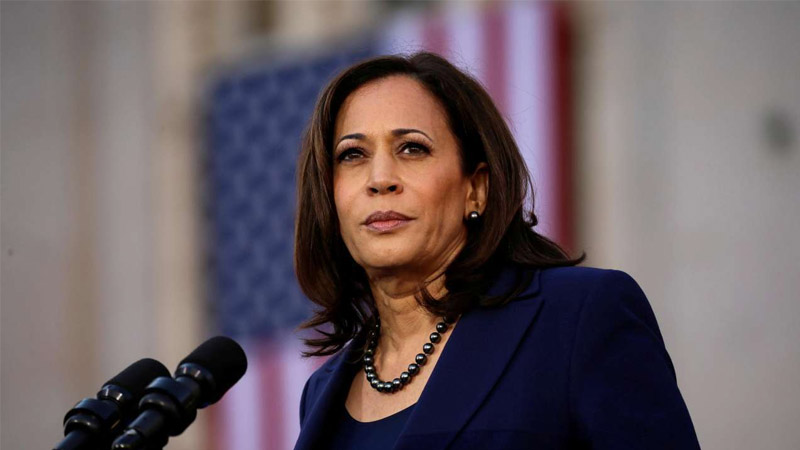Vice President Kamala Harris recently addressed concerns during an ABC interview about a video showcasing the challenging conditions at the border in El Paso, highlighting the urgent need for reform within the U.S. immigration system. The conversation, which was brought to public attention by RNC Research on the social platform X, formerly known as Twitter, on Sunday shed light on the critical issues at the forefront of national discourse regarding immigration.
The term “border czar” has often been associated with Harris, underscoring the high expectations placed upon her to spearhead and navigate the complexities of immigration policies and border management. This designation not only highlights the pivotal role Harris assumes in this context but also denotes a certain level of authority and responsibility bestowed upon her by the current administration to address and mitigate these pressing challenges.
In her interaction with ABC, Harris openly acknowledged the deep-seated issues plaguing the U.S. immigration system, echoing a sentiment widely shared by many Americans about the necessity for substantial and comprehensive immigration reform. Her candid admission, “We need to fix it,” reflects an acknowledgment of the immediacy of the situation and an administration-wide commitment to devising and implementing effective solutions.
The video in question, though not detailed in the conversation, likely portrayed vivid and possibly unsettling scenes of overcrowded border facilities or groups of asylum seekers, bringing to the forefront the human and logistical challenges inherent to the current state of border management. Harris’s response to the video indicates a broader comprehension of the complexities involved and a readiness to engage in constructive efforts to ameliorate these conditions.
Harris’s role as Vice President grants her a significant platform to influence the direction of immigration policy and border security measures. Her statements and actions in this arena are therefore subject to intense scrutiny and analysis by various stakeholders, including policymakers, advocacy groups, and the general public. Her acknowledgment of the systemic flaws within the immigration framework and her call to action signal an openness to dialogue and collaboration aimed at achieving meaningful reform.
Furthermore, Harris’s reference to a general consensus among Americans regarding the necessity for immigration reform underscores the widespread recognition of the issues at hand and the collective desire for change. The specific mention of El Paso serves to highlight the unique challenges faced by border cities and the importance of adopting localized strategies to address the distinct dynamics at play in such areas, underscoring the multifaceted nature of border management and the need for tailored solutions.

